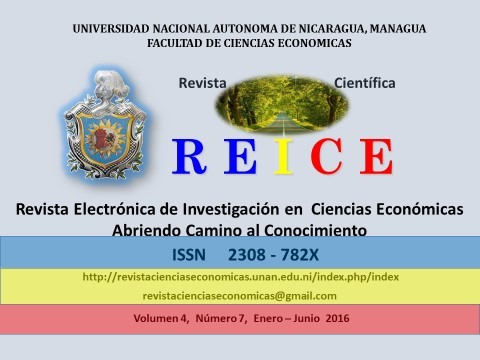Transformation in the family structure and social capital as part of the adaptive strategies in Malacatoya, Boaco
DOI:
https://doi.org/10.5377/reice.v4i8.3054Keywords:
adaptive strategies, peasantry, peasant family unit, social capital, exchangeAbstract
This article looks to discern of which are the internalezed adaptive strategies by the peasantry of Malacatoya’s territory. To carry out the research process, a methodology which combined ethnography with descriptive statistics and case analysis was developed. From the theoretical approach that the peasantry, by pressure from the dominant system, requires to choose different adaptive strategies, it was found that: having more than half of the peasant of territory access to land multiactivity is minimal; the structure of the family unit is set to a minimum number of members to promote self-consumption; and cultural mechanisms such as “hand back” are the social capital that complements the economic capital missing in families.
Downloads
896
Downloads
Published
How to Cite
Issue
Section
License
Copyright (c) Revista Electronica de Investigacion en Ciencias Economicas
The rights to the articles published in REICE are from the journal, in order to be able to manage their best dissemination. However, since the purpose of the same is the dissemination of knowledge, this journal provides immediate free access to its content, under the principle that making research available to the public free of charge, which fosters a greater exchange of global knowledge.
The opinions expressed by the authors do not necessarily reflect the position of the publisher of the publication or of the UNAN-Managua. Its reproduction and distribution is authorized (in any type of support) provided that the following indications are fulfilled:
- The authorship of the work
- Indicate its origin (REICE magazine, volume, number and electronic address of the document)

